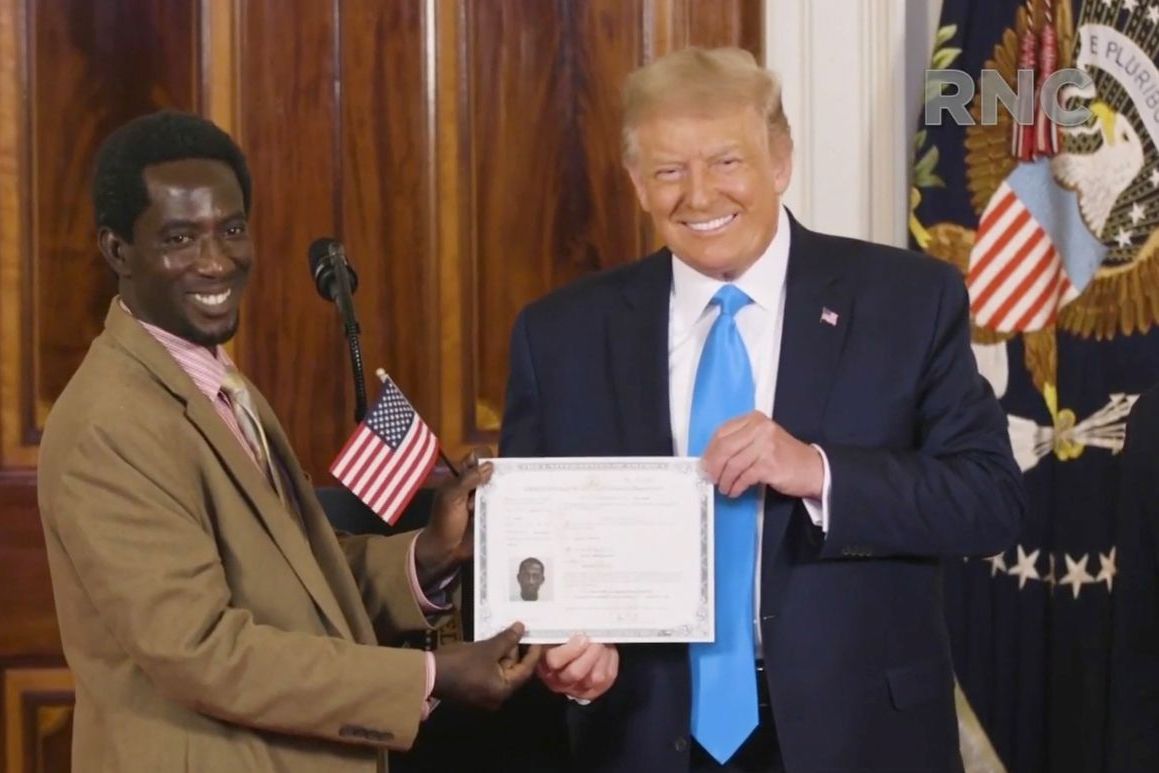A Liberal Party review into Scott Morrison’s stunning election victory has warned the Coalition’s future chances of forming government will remain “worryingly narrow” unless it improves its standing in Victoria and parts of NSW.
The review warns there is “no room for any complacency” within the party following the 2019 election campaign, recommending a “comprehensive impartial candidate vetting process” for candidates to avoid a similar situation where 10 Liberals were disendorsed during the campaign.

A victorious Scott Morrison takes to the stage on election night.Credit:James Brickwood
Undertaken by former senator Arthur Sinodinos and former New Zealand government minister Steven Joyce, the report – released on Friday – identified the federal budget as a “key turning point” in the party’s electoral recovery and the almost single-handed successful prosecution of the campaign by Prime Minister Scott Morrison.
“The successful election result was achieved through sheer grit and determination from the top of the party, laid over a clear political strategy, with the help of a Labor opposition that made many missteps,” it says.
“It is important not to overlook that the margin of victory was very small.”
The review recommends a particular focus in Victoria, and to some extent, NSW, warning unless the Liberal Party “rebuilds and recovers” lost ground in Melbourne and surrounding areas, its path to victory in each election will remain “worryingly narrow”.
It said in NSW the party needed to convert its “voting strength” into additional MPs, noting 11 of Labor’s 25 marginal seats were in Australia’s largest state.
The party should also establish a taskforce of experienced professionals and volunteers to target seats formerly held by the Coalition and currently held by independent MPs in 2022, the report recommends.
“Making further progress in both states will require early work and more resources,” the report says.
“In order to win the next election in 2022, the Liberal Party will need to seek to gain seats rather than just hold the ones it has.”
Loading
Ten Liberal candidates were disendorsed during the election campaign, many for anti-Muslim or homophobic remarks on social media.
The report recommends candidates for marginal seats should be preselected 10 to 12 months prior to the election, with the balance selected by six months out.
It calls for the establishment of candidate colleges or academies to be set up to identify and train potential candidates for public office in advance of pre-selection.
The federal director will also lead a process with the states and territories to ensure agreed national application forms are required to be completed by all prospective candidates, covering their citizenship status, pecuniary interests, professional relationships and digital histories.
“The comprehensive impartial candidate vetting process must be timed to be completed before candidates are preselected and endorsed to stand on behalf of the Liberal Party at federal elections.”
It also recommends that the Liberal and National parties work together to minimise three-cornered contests in marginal seats.
“While the election campaign itself was successful, pre-campaign preparation across state divisions and electorates was highly variable,” the review says.
It calls for a “much greater focus” on pre-campaign planning at state and electorate levels to boost on the ground campaigning, including providing electorate campaign manuals and regular volunteer training sessions, and professional campaign field officers to support the standing up of marginal seat campaigns from around 10 months out from election day.
The Coalition won the two-party preferred vote by 51.5 per cent to 48.5 per cent, picking up three seats in the process to hold a slim majority of 77 seats in the 151-seat House of Representatives.
Loading
The Coalition parties largely held the line in NSW, Western Australia and South Australia. In Victoria two seats were lost following boundary changes in the state, while Chisholm was recovered.
In Tasmania, the Liberals picked up two seats they’d lost in 2016, while in Queensland the Liberal National Party achieved a record two-party preferred vote of 58 per cent and picked up a further two seats to hold 23 of the 30 available seats in the state.
The review reaffirms the party’s submission to Parliament to shorten the pre-polling period to two weeks prior to election day and recommends measures to improve behaviour around polling booths, including restricting campaigning activity to people supporting candidates standing for election.
It also recommends a membership and volunteer drive to strengthen the party base, warning the party’s organisation risks being “out-campaigned on the ground” in marginal seats and it needs more campaign workers.
Rob Harris is the National Affairs Editor for The Sydney Morning Herald and The Age, based at Parliament House in Canberra
Loading


